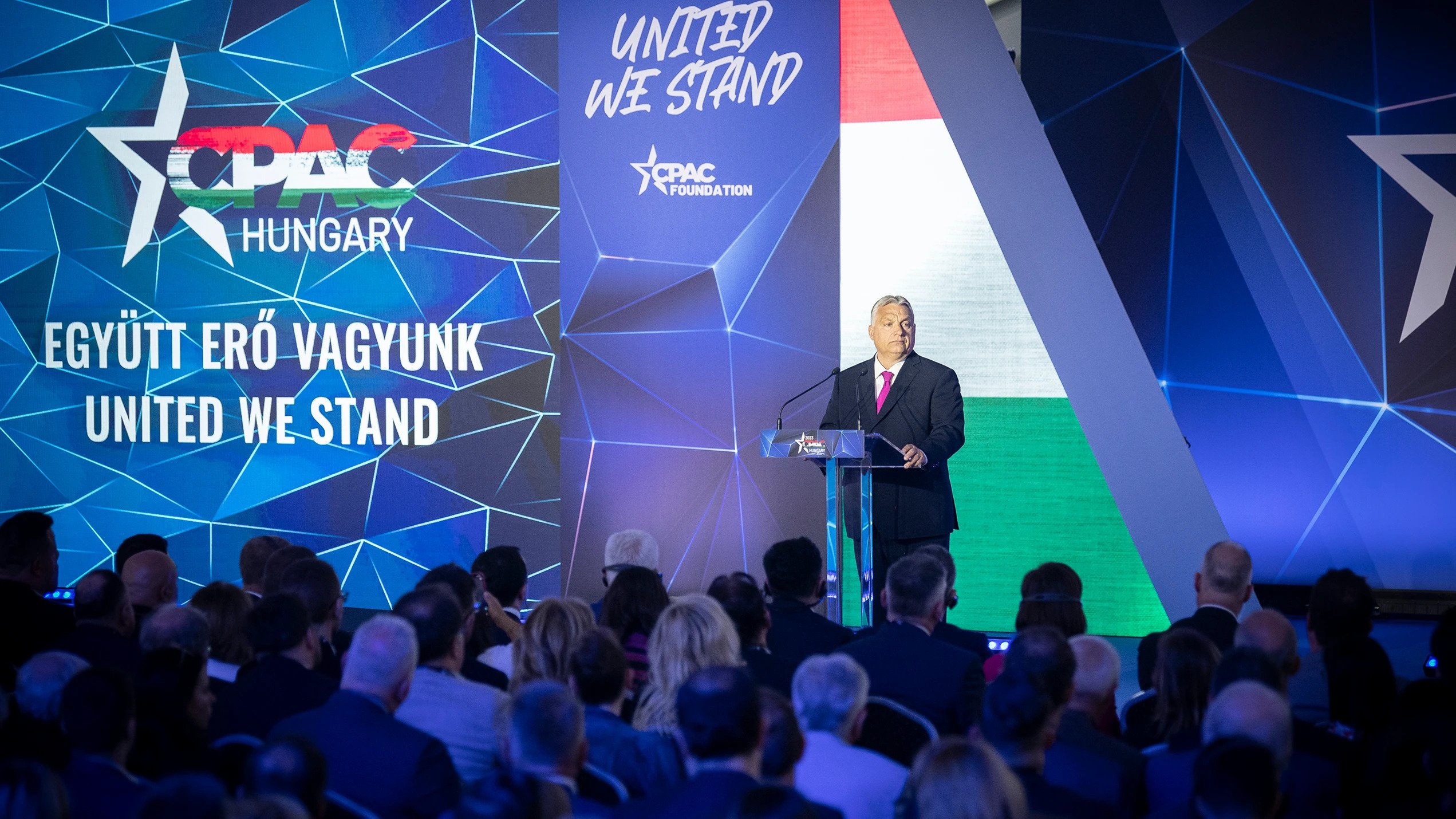
Tucker Carlson, Andrej Babis or Matt Schlapp, among others have delivered speeches on the first day.Continue reading

With the title “What is conservative? The rise of national conservatism,” Austrian public media ORF broadcast a four-part radio program, Mandiner reports. The third episode focused on Hungary.
The news about Hungary are “increasingly worrying,” ORF said, as the country is “turning into an illiberal democracy.”
At the same time, Hungary is becoming something of a hub for conservatives around the world.
The latter is illustrated by an interview on the program “Tucker Carlson Tonight” last August, in which “ultraconservative Tucker Carlson presents Hungary as a role model for his audience” because, unlike Washington, Budapest is able to defend its borders and preserve its culture. Reflections are also quoted from a panel discussion organized by the Danube Institute with American author, Rod Dreher, and Manhattan Institute Senior Fellow, Chris Rufo, who, according to ORF, are “perhaps the most important conservative thinkers in the United States.”
ORF points out that the Danube Institute was founded and funded by Viktor Orbán and that its director, John O’Sullivan, once an advisor to the British prime minister, Margaret Thatcher, established “O’Sullivan’s first law,” which states that
any organization that is not explicitly right-wing will, in time, become left-wing.
This idea is believed to guide Orbán’s government in building conservative networks and institutions. One example, he said, was CPAC, “the most important event for U.S. Republican activists,” which was held in Hungary in early May.
More importantly, he said, the government is using the Mathias Corvinus Collegium (MCC) to “permanently anchor and institutionalize conservative ideas and values in society.”
Zoltán Szalai, director general of the MCC, also spoke on the program, saying of the MCC’s role that “it is important to bring additional education, additional quality and additional knowledge to Hungary for the best students from the international environment.” However, he believes that
the purpose of the college is not to promote a particular ideology.
The radio station points out that many of the MCC’s panel discussions are attended by leading conservative philosophers and many of them are held at the Scruton Café, which was also suggested by Szalai. The MCC’s director general said of the café, “We think it’s important to communicate its values (Scruton’s – ed.) in unconventional ways as well,” and the Scruton Café chain, “which is known for hosting very good events, lectures and debates every day,” is a good example. “The young generation loves these things,” Szalai told ORF.
This article was originally published on our sister site Ungarn Heute.
Featured photo via Miniszterelnök.hu